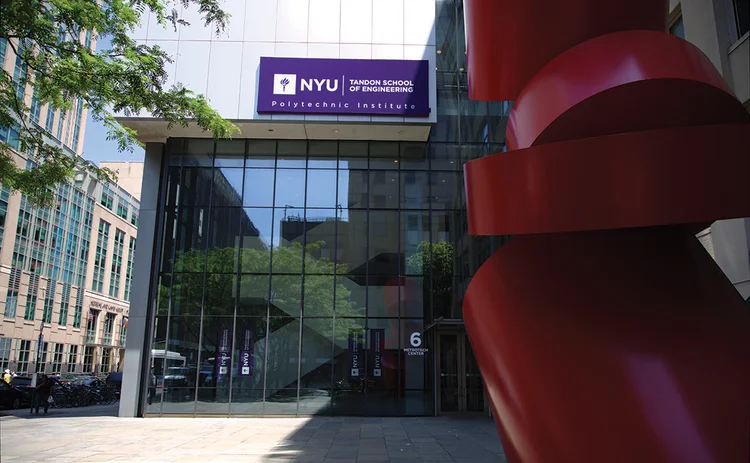
Quant Guide 2020: New York University (Tandon School of Engineering)
New York City, US

If the popularity of a programme is measured in the number of applicants, NYU’s Tandon School of Engineering would be this year’s favourite master’s course. The 1,594 applicants for its MS in Financial Engineering is the highest among all institutions in Risk.net’s 2020 quant guide.
The programme, led by department chair of finance and risk engineering Peter Carr – a past recipient of Risk.net’s quant of the year award – offered places to 450 applicants, of which 314 were accepted. This acceptance rate among those with offers is also among the highest of this year’s group.
Despite the large size of the intake, classes at the Brooklyn-based campus are kept small; according to Tandon, the average class size in compulsory courses is 20 students, and no class should have more than 30 attendees. Prior to their first semester, new students must pass a pre-programme boot camp: a two-week, pass-or-fail summer school involving online classes and intensive teaching in subjects like advanced calculus, Python programming and statistics.
The financial engineering master’s also features practitioner input in its schedule. Once teaching begins, students can attend weekly seminars led by industry professionals and, Tandon says, 10 new industry professors were added to the programme staff between 2018 and 2019. Among them are Ken Winston, former chief risk officer at Morgan Stanley Investment Management; quant research specialist Ken Perry, and Michael Sotiropoulos, ex-Deutsche Bank quant analyst.
Carr says the programme continues to introduce innovative curriculum offerings, pointing to a new Tandon massive open online course, or MOOC – a generic open-access course designed for remote or flexible learners. He says the MOOC on machine learning is the first of its type on the topic. Courses are dropped if attendance rates on them fall low enough. Post-graduation, increasing numbers of recent Tandon financial engineering master’s graduates are taking data science positions, Carr says, adding that traditional demand for “trading and risk management roles” at hedge funds and banks remains healthy.
Only users who have a paid subscription or are part of a corporate subscription are able to print or copy content.
To access these options, along with all other subscription benefits, please contact info@risk.net or view our subscription options here: http://subscriptions.risk.net/subscribe
You are currently unable to print this content. Please contact info@risk.net to find out more.
You are currently unable to copy this content. Please contact info@risk.net to find out more.
Copyright Infopro Digital Limited. All rights reserved.
As outlined in our terms and conditions, https://www.infopro-digital.com/terms-and-conditions/subscriptions/ (point 2.4), printing is limited to a single copy.
If you would like to purchase additional rights please email info@risk.net
Copyright Infopro Digital Limited. All rights reserved.
You may share this content using our article tools. As outlined in our terms and conditions, https://www.infopro-digital.com/terms-and-conditions/subscriptions/ (clause 2.4), an Authorised User may only make one copy of the materials for their own personal use. You must also comply with the restrictions in clause 2.5.
If you would like to purchase additional rights please email info@risk.net
More on Quantitative finance
Quant Finance Master’s Guide 2026
Risk.net’s guide to the world’s leading quant master’s programmes, with the top 25 schools ranked
Baruch, Princeton cement duopoly in 2026 Quant Master’s Guide
Columbia jumps to third place, ETH-UZH tops European rivals
Quant Finance Master’s Guide 2025
Risk.net’s guide to the world’s leading quant master’s programmes, with the top 25 schools ranked
Baruch maintains top spot in 2025 Quant Master’s Guide
Sorbonne reclaims top spot among European schools, even as US salaries decouple
Quant Finance Master’s Guide 2023
Risk.net’s guide to the world’s leading quant master’s programmes, with the top 25 schools ranked
Baruch topples Princeton in Risk.net’s quant master’s rankings
US schools cement top five dominance as graduate salaries soar
Is it worth doing a quant master’s degree?
UBS’s Gordon Lee – veteran quant and grad student supervisor – asks the hard question
Starting salaries jump for top quant grads
Quant Guide 2022: Goldman’s move to pay postgrads more is pushing up incomes, says programme director







